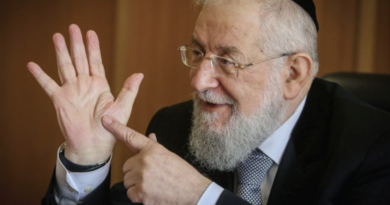The Dangers of Telling Lies and Lashon Hara
The Chofetz Chaim, Rabbi Israel Meir Kagan (1838–1933), is one of Judaism’s most authoritative voices on ethical speech and the avoidance of harmful language and the dangers of telling lies, as laid out in his works Chofetz Chaim and Shemirat HaLashon. His teachings also address the dangers of telling lies, which he strongly opposes, as it goes against the Torah’s emphasis on truth.
Core Teachings of the Chofetz Chaim on the Dangers of Telling Lies:
- Prohibition of Falsehood (Sheker):
- The Chofetz Chaim bases his teachings on the Torah’s commandment: “Distance yourself from falsehood” (Exodus 23:7). This verse highlights the importance of absolute integrity in speech.
- According to the Chofetz Chaim, lying undermines the divine attribute of truth (emet), which is central to God’s essence. Since humans are created in God’s image, maintaining truth in speech is vital.
- Types of Lies and Their Severity:
- Lies in Business or Financial Matters: The Chofetz Chaim is particularly stringent regarding dishonesty in commerce. He warns that misleading others, even with subtle deceptions, violates ethical and halachic principles.
- Lying for Harmful Intent: Telling lies to harm others’ reputations or deceive for personal gain is considered both a violation of sheker and lashon hara (evil speech). There are many dangers of telling lies.
- Casual or “White” Lies: Even seemingly harmless lies are discouraged because they erode trustworthiness and compromise the speaker’s moral character.
- Permissible Exceptions:
- The Chofetz Chaim acknowledges limited circumstances where lying may be permitted for the sake of peace, such as the precedent set by the actions of Aaron HaKohen or the narrative in Genesis where God modified Sarah’s words to avoid discord between her and Abraham.
- These exceptions, however, must be handled with extreme care and cannot justify habitual dishonesty.
- The Spiritual Consequences of Lying:
- The Chofetz Chaim teaches that lying damages not only interpersonal relationships but also one’s soul and connection with God.
- Truth is seen as a foundational value in creating a harmonious society and aligning oneself with divine will.
- Practical Guidance:
- The Chofetz Chaim advises constant vigilance in speech, encouraging individuals to pause and think before speaking to ensure they are truthful and accurate.
- He recommends studying the laws of sheker and lashon hara to develop a deeper awareness of the power of words.
Summary:
The Chofetz Chaim unequivocally opposes lying, and sees the danger of telling lies as antithetical to Torah values and divine truth. While recognizing limited situations where a deviation from truth may be necessary for peace or protection, he stresses the importance of honesty as the bedrock of ethical and spiritual life. His teachings inspire individuals to cultivate a commitment to truthfulness in all aspects of their interactions.





